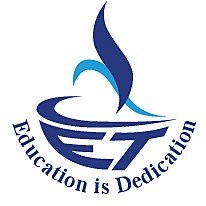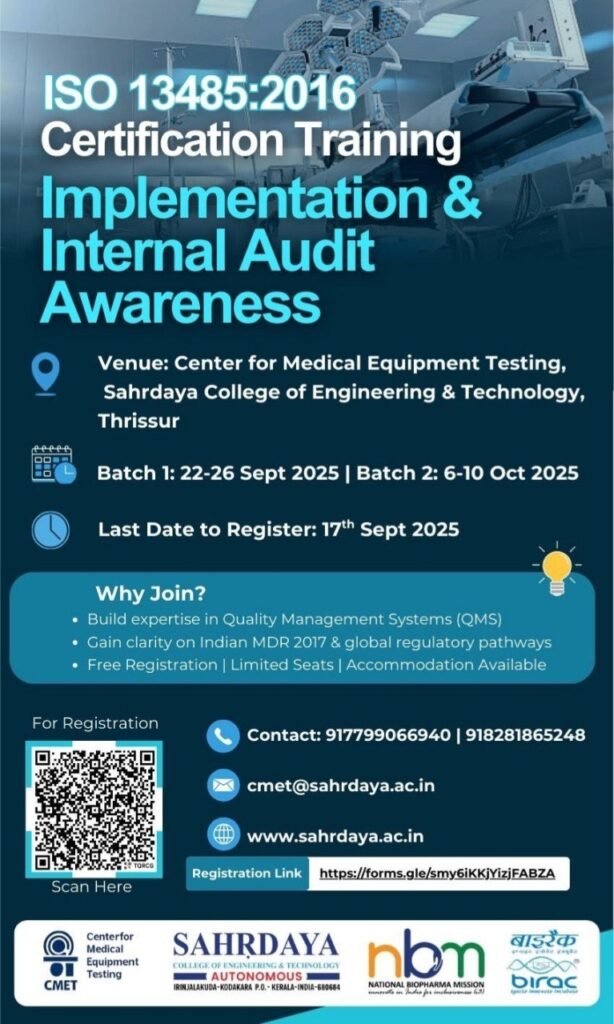Innovations in Teaching Learning Process
Innovative teaching-learning approaches are considered as a combination of the traditional lecture method along with other innovative methods such as screen casting which help the young minds to increase their learning capacity. To enhance the learning experience of students, it is required for the faculty to shift from conventional methods of teaching to a creative form of teaching. The works shown are all available for peer review and can be developed further by others.
| Google sites | Few faculty members have also created their own Google sites wherein they upload study material relevant to their subjects. The links are shared with the students and the contents are openly accessed by all students. Google sites: Faculty Name: Dr. Silpa PA Website link: https://silpapa.wordpress.com/vlsi/ Available courses in the site 1. Courses code/Name: EC304 VLSI Batch:S6 EC(2018-19) https://silpapa.wordpress.com/vlsi/ 2. Courses code/Name: EC MEMS Batch:S7 EC(2019-20) https://silpapa.wordpress.com/mems/ 3. Courses code/Name: EC 402 Nano-electronics Batch:S8 EC(2019-20) https://silpapa.wordpress.com/ec402-nanoelectronics/ 4. Courses code/Name: EC 205 Electronic Circuits Batch:S3 (2020-21) https://silpapa.wordpress.com/electronic-circuits/ |
| Google Classroom Online classes: Google meet Virtual Labs | Creating a Google classroom using Google app. Students are made to join as members of the Google classroom. Lecture materials, Assignments, Quiz questions are posted in the online classroom. Many faculty members are using Google Classroom for organizing and managing online classes. An online class is a course conducted over the Internet. They are generally conducted through a learning management system, in which students can view their course syllabus and academic progress, as well as communicate with fellow students and their course faculty. These classes can be recorded for future reference. Lab experiments are recorded and the demo videos are shared with the students. This is done mainly for Logic Circuit Design Lab and Communication Systems Lab. The Communication Systems Lab is also conducted with the help of virtual labs provided by Amrita Vishwa Vidyapeetham University at https://vlab.amrita.edu/. For the Logic Circuit Design Lab, coding experiments and the tools used are demonstrated and explained online to the students so that they can execute their own codes and submit the same. Circuit experiments are demonstrated online and simulated using online applications. Experiments are conducted virtually in the Communication Systems Lab too. Demo sessions are provided online by the faculty. The same can be performed by students at their remote terminals. This helps them in learning basic and advanced concepts through remote experimentation. This practice provides a complete Learning Management System for Virtual Labs where the students can avail various tools for learning, including additional web-resources, video-lectures, animated demonstrations, and self-evaluation. |
| ICTs are used for content delivery. Smart Classrooms | Objectives: ● To provide direct access to quality instructional resources through computers connected in LAN and Internet. ● Motivate the students to do electronic presentations (PPT). Facilities: Classrooms and labs are provided with a smart board, LCD projector, computer with LAN and internet connection. The faculty member can use a blackboard/ LCD projector judiciously during the lecture delivery. The faculty member can access the database of the digital library from the classroom which consists of course material, recorded video lectures, and animations. Faculty and Students can access the journal resources also from the classroom. The student can access the server of the digital library from home also with the help of the URL link provided in the college website. https://www.sahrdaya.ac.in/central-library/e-resources/ e-books and e-journals can be accessed using the link given below. EBSCOhost: https://search.ebscohost.com IEEE Xplore: https://ieeexplore.ieee.org DELNET: www.delnet.in (http://www.delnet.in/) Outcome: The students and faculty members are engaged in an effective teaching and learning process through the use of digital learning platforms. |
| Student Seminars | Seminar from the first semester onwards (other than seventh semester) which is being practiced in Sahrdaya helps students to enhance oral expression and presentation skills. This significantly boosts students’ confidence and their learning experience. Seminars are a vital part of academic programs that allow developing essential skills and understanding of the subject. |
| Group Discussions | This initiative has proved to be highly effective in class sessions especially in courses such as Life Skills and Professional Communication. A group leader is selected for each group discussion activity in class sessions. The group leader is made responsible for all the outcomes of the activity of that particular day. Every time, the group leader is changed to pass the responsibility to each student by the end of the semester. This inculcates leadership and responsibility in students. |
| Technical Writing Skill Development | Technical writing is an essential skill for engineers. Students are instructed to submit a technical paper along with their project report as part of their academic project. To enhance the technical writing skills of students, the faculties conducted training sessions on how to write technical papers using Latex which is a document typesetting system. It will help students to produce high-quality technical/scientific documents such as articles, books, theses, technical reports etc. |
| Lecture Capture system | Lecture Capture system is an automated audio-video recording solution for classroom lectures. It provides access to classroom video lectures and online activities. Students can access the recorded video lectures and other materials from anywhere through laptops, tablets and Android platforms by using URL. A few samples of the URLs are given below. Faculty Name: Ms Jisha Jacob Course code/Name: EC 206 Computer Organisation Batch: S4 EC 2018-2022 https://drive.google.com/drive/folders/1BHRbgj8KiR30A3K7RCwLwlJ-P6bTdqRq?usp=sharing |
| You Tube channels | The video lectures of specific topics in selected courses were prepared by the course faculty and had the same content as the classroom lectures. Video lectures give students control of the lecture and are portable. Students can replay segments and stop the lecture as they study to understand the content. They can skip the segments of topics they know. In effect, they can adjust the instructor’s delivery speed and topic selection to match their learning pace, especially beneficial to the slow learners. 1. Course Code and Name: ECT 202 Analog Circuits Faculty : Ms. Jisha Jacob https://youtube.com/playlist?list=PLzWrC214aG1oVSqP0MOOxocyDv8lkPFDz 2. Course Code and Name: ECT 306 Information Theory and Coding Faculty : Ms. Ambily Francis https://youtube.com/@ambilyfrancis5879 3. Course code and Name: AWP 306 Antenna and wave propagation Faculty: Dr. Vishnu Rajan https://www.youtube.com/watch?v=fwPAIkXkX74&list=PLYCD4d1C3aKMEBtvCaXjhXAqMnpndztId&index=11 |
| Simulation Based Assignments | Faculties encourage students to do assignments based on software tools like Proteus, Python Ansys HFSS, Optisystem, MATLAB etc. Apart from simulation experiments done in lab, assignments based on software tools will help the students to enhance their learning experience. |
| Research oriented Assignments | Creative teaching and learning can be cultivated in any course context to increase student engagement and motivation, and promote thinking skills that are critical to problem-solving and innovation. Students are given a problem to find the design limitation of any biomedical equipment and mention the possible suggestions to rectify the problem by referring to recent literatures. Faculty name: Dr. Caren Babu Subject: EC365 Biomedical Engineering |
| Creative Videos | ECE students were given an assignment to make a DAY IN MY LIFE video which shows practicing the Zero waste concept/3R waste management in their home. Students will be able to capture and understand the concepts in a smarter way. Faculty name: Mr. Saran K B Subject : MCN 201 Sustainable Engineering Videos created by students as part of their assignment can be accessed through the following link. https://drive.google.com/drive/folders/1y83Tq_6jW2VlpLeJxpTC-QcUv6x74RBH?usp=sharing |
| Crossover Learning | An effective method for crossover learning involves teachers proposing a question or problem in the classroom to be solved in field visits. Students can learn by collecting photos, taking down notes, or asking other people for their own thoughts.2016-2020 batch ECE students were given an assignment to visit a hospital to understand the working principle, block diagram, advantages, and specifications of particular biomedical equipment and take a selfie with the equipment. |
| Online Quiz Tool: Linways Google Forms | Low-stakes testing involves the frequent use of evaluation instruments that have a low impact on a students’ course grade. Online Quiz: These help in creating interest by breaking the monotony of regular classes while enhancing the learning experience. Online quizzes are given in both theory and Lab courses |
| Major core courses in the curriculum are linked with massive open online courses (MOOC) NPTEL Coursera | Faculty members and students are motivated to take up online courses for their subjects from various reputed platforms including NPTEL, Google and Coursera. NPTEL: The main objective of the National Programme on Technology Enhanced Learning (NPTEL) is to enhance the quality of engineering and science education in the country by developing content for undergraduate and postgraduate curricula using video and web- based courses. These courses cover the syllabi prescribed by universities and approved by AICTE. NPTEL Local Chapter: Our college is having NPTEL Local Chapter: It is a partnership between the college and NPTEL. Many students and faculty members in the department enroll for courses and get certified after the successful completion of the course. http://nptel.ac.in/LocalChapter NPTEL Courses attended by Faculty members Following are some of the courses completed by our department faculty: Academic Year 2022-2023 ● Dr. Silpa P A - Patent Law for Engineers and Scientists ● Ms. Ambily Francis - Principles of Signals and Systems ● Dr. Silpa P A - Patent Drafting for Beginners ● Ms. Naiji Joseph- Signal Processing Techniques and Its Applications ● Ms. Anju Babu- Foundation of Cloud IoT Edge ML Academic Year 2021-2022 ● Dr. Vishnu Rajan -Python for Data Science ● Dr. Silpa P A - Intellectual Property Academic Year 2020-2021 ● Dr. Vishnu Rajan-The Joy of Computing using Python Coursera: Many faculty members and students in the department have completed online courses based upon their area of interest. These courses also help the faculty to advance their skills for career development. https://www.coursera.org/ Google : Google provides a range of free learning content designed to help enhance one’s skills as well as advance in career. Courses are available at https://learndigital.withgoogle.com/digitalgarage/courses . One can learn by selecting individual modules or take an entire course end- to-end. A few of our faculty members have completed online certifications by Google. |


